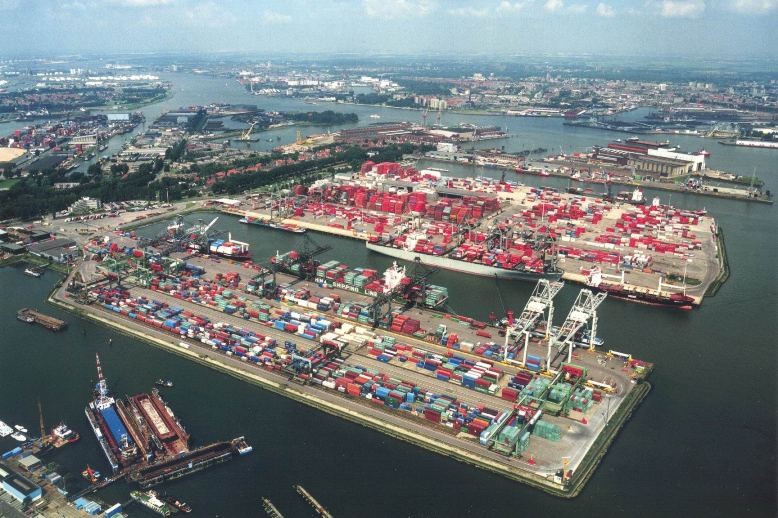
Rotterdam has been labeled Europe’s top carbon-polluting port by the non-governmental organization Transport & Environment (T&E).
The Port of Rotterdam is associated with almost 14 million tonnes of CO2 each year, putting it on a par with Europe’s fifth biggest industrial polluter – the Weisweiler coal power plant in Germany, according to a new T&E study ranking ports’ carbon emissions.
Antwerp and Hamburg come in second and third, while three of the top 10 polluting ports are in Spain. T&E) calls on ports to get behind EU-wide efforts to reduce shipping’s climate impact as the industry experiences bumper profits.
T&E’s study assessed carbon emissions from ships departing and entering ports from across the supply chain, as well emissions from activities at port like loading, unloading and refueling.
“The shipping industry is making a killing right now. Ports are at the heart of this and their climate impact is enormous,” said Jacob Armstrong, sustainable shipping officer at T&E. “Yet, instead of getting behind proposals to clean up shipping, like comprehensive port electrification and mandates for green fuels, ports simply aren’t doing enough to clean up the sector.”
T&E says the European Commission can help ports by directing revenues from the upcoming carbon market to clean fuel infrastructure in ports. The group is also calling on ports to support the EU’s green infrastructure law (AFIR), which is currently under discussion in the European Parliament and the Council, with a final text expected in the second half of 2022.
“Ports can have a direct impact in greening our planet by providing clean shipping infrastructure. This means installing hydrogen-based refueling infrastructure and shore-side electrification that would allow ships to turn off their engines and plug in at port. This would also significantly improve the lives of those living near what are currently some of the most polluted places on earth,” said Armstrong.
Copyright Ships & Ports Ltd. Permission to use quotations from this article is granted subject to appropriate credit given to www.shipsandports.com.ng as the source.
